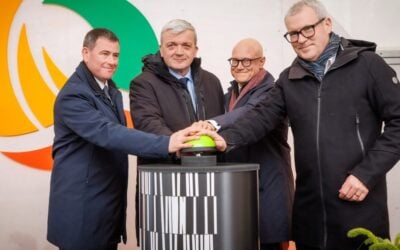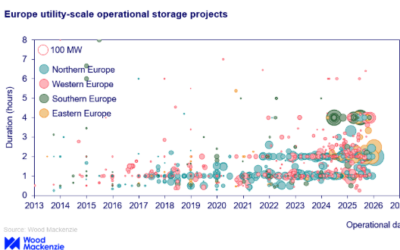
The European Commission (EC) has approved a €1.2 billion (US$1.32 billion) state aid package for Poland to support the deployment of electricity storage facilities.
The EC, the administrative and legislative governing body of the European Union (EU), announced the scheme’s approval yesterday (3 October).
It will provide direct grant and loan funding worth up to 65% of the capital cost of ‘at least 5.4GWh’ of investments in electricity storage projects across the Eastern European country.
It looks to be a big step forward for the Polish energy storage market, which is already advancing into a leading position among Central and Eastern European markets, driven forward by a 2023 capacity market auction in which 1.7GW was awarded to energy storage bids.
Try Premium for just $1
- Full premium access for the first month at only $1
- Converts to an annual rate after 30 days unless cancelled
- Cancel anytime during the trial period
Premium Benefits
- Expert industry analysis and interviews
- Digital access to PV Tech Power journal
- Exclusive event discounts
Or get the full Premium subscription right away
Or continue reading this article for free
The capacity market was a major topic at the recent Energy Storage Summit Central and Eastern Europe 2024, which our publisher Solar Media hosted in Poland’s capital Warsaw, in late September.
4MWh threshold for Poland scheme
The new scheme falls under the EC’s Temporary Crisis and Transition Framework (TCTF), which was introduced in response to the Russian invasion of Ukraine to enable affected EU Member States to bolster their economies.
TCTF focuses on energy transition efforts, and aid will be available for states to grant until the end of 2025 for measures to support the energy transition in three key areas: accelerating the rollout of renewable energy, facilitating the decarbonisation of industrial processes, and accelerating investments in low-carbon technology manufacturing.
Funding for the scheme in Poland will come from two sources: the EU’s Modernisation Fund, paid out to 13 Member States for modernisation of their energy systems in line with EU targets, and from the EU Recovery and Resilience Facility.
It follows a similar amount of state aid funding being made available for energy-intensive industries in Poland struggling with rising energy costs, approved by the EC around the same time last year.
The electricity storage support scheme aims to facilitate the reduction of fossil fuel use and the increased penetration of renewable energy on the Polish grid.
Systems with 4MWh capacity or higher will be eligible, connected to either transmission or distribution networks at all voltage levels.
Grants and loans combined should not exceed 45% of the cost of each project; however, for medium-sized companies, this could be extended to 55%, and small companies could receive aid worth up to 65% of capital investment costs.
Approvals to date include €17.7 billion package for Italy
Over the last year or so, the European Union has approved state aid schemes to support energy storage deployments in countries.
These include a €103 million package of direct grants in Romania in March 2023, €150 million for renewables and storage in Slovenia and €1.1 billion for Hungary a couple of months later. In December 2023 a €17.7 billion package in Italy toward the development of more than 9GW/71GWh of storage that the country’s transmission system operator (TSO) TERNA has identified the need for was approved, and earlier this year a €1 billion scheme in Greece to support renewable energy and storage got the go-ahead.
Yesterday, ESN Premium published an interview with Jan Kloczko of independent power producer (IPP) Greenvolt, which won 70% of the recent capacity market awards.
Kloczko spoke about the bidding process and how Greenvolt was able to win out despite participation being an “intensive and costly exercise,” the status of the Polish market and how initial excitement around the nascent sector needs to be accompanied by a deep understanding of markets and technology, including battery degradation.
Read more coverage from and related to the Energy Storage Summit Central and Eastern Europe.





